Working from home can be amazing. The longest commute is from your bed to your computer, there’s no one breathing down your neck, and lunch can be whenever you feel like it. Heck, you can do anything now. You’re working from home, in your castle, where you make the workday rules. Protip: Call your 450 square-foot, $2,500-a-month apartment your castle for a quick ego boost.
Without an office space, you are untethered, and your talent knows no bounds. With every keystroke, your company shall grow, profits will soar, the higher-ups will send you fruit baskets and candy, then shower you with bonuses and raises.
Or maybe what you’re doing from home is putting you on a fast-track to Fired Town, where the kitchens and pantries are empty and the residents eat regret. But how do you know if what you’re doing as a remote worker is the right thing to do, and the best way to get a promotion?
We’re here to help with some career advice from experts on winning remote work behavior. So if you want to get a raise or promotion while working from home (or anywhere), don’t do any of these things.
Hop on Zoom Late

fizkes / Getty Images
You might not be the primary speaker, but getting into a video chat late will make you look lazy. It’s easy to slap the Zoom link late and start reading Reddit, but it won’t get you anywhere. Instead, get on there early, and start talking.
“Even without a formal presentation task assigned, a career-focused employee can take the role of greeter, arriving to Zoom meetings early and chatting up the participants to welcome them and put them at ease,” says Laura Handrick, a human resources professional at Choosing Therapy.
Go Completely Off Topic While Speaking
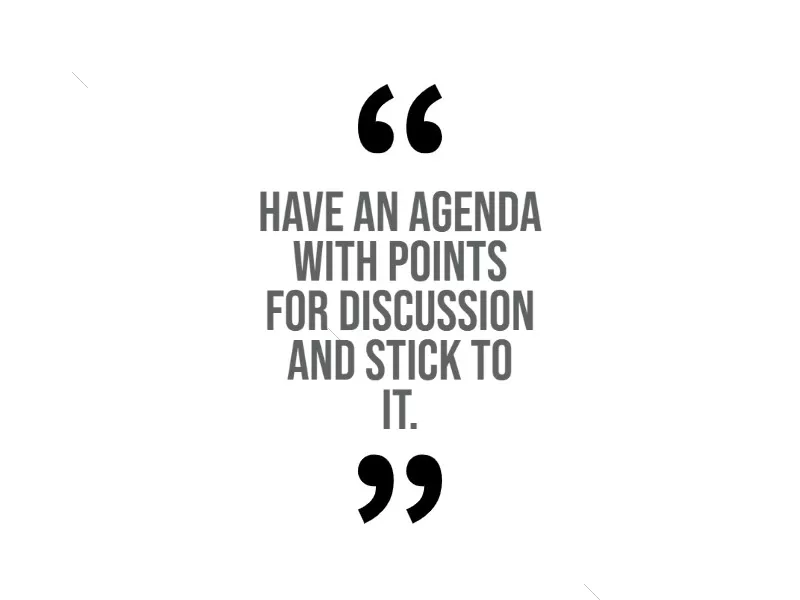
Zoom and video calls can get a little messy, with people struggling to be heard and people’s faces flashing on screen while they speak. It’s difficult for everyone to get their point across and feel like they’ve been heard.
One of the worst things you can do is start rambling. This will make sure everyone’s eyes glaze over and forget anything you say.
“Have an agenda with the points for discussion and stick to it,” says Anne Barker, personal finance expert and founder of Logical Dollar. “If anyone tries to raise anything new, either leave time for a discussion on any other business or suggest it be put on the agenda for the next meeting.”
Talk For a Really, Really Long Time

filadendron / Getty Images
Another great tip to make everyone bored: Talk for as long as possible, without stopping to answer questions or confer with the team. Yeah, don’t do that.
“Sticking to a time limit for meetings is one of the best ways to ensure that discussions are constructive yet efficient,” says Barker. “It will also be greatly appreciated by all other attendees as well.”
Ignore Everyone
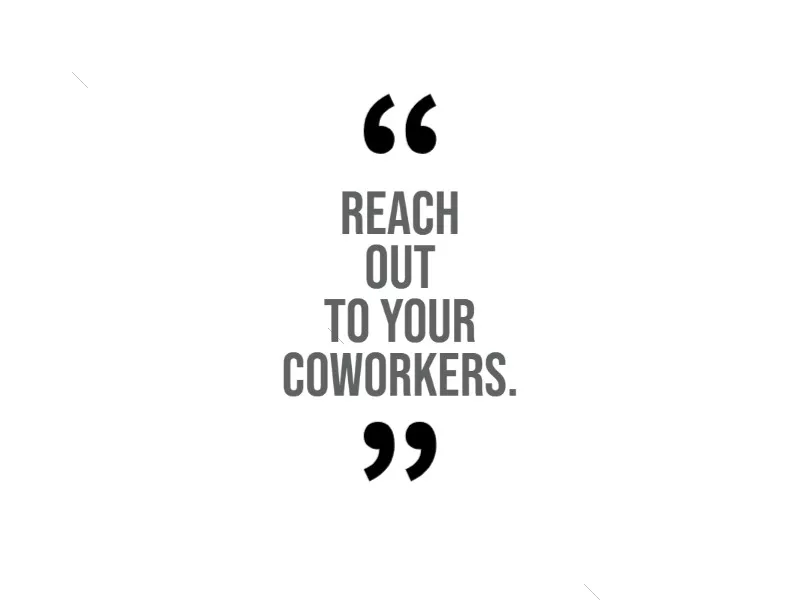
What better way to become a cog in the wheel than to pretend like no one else exists at work? Or you can reach out to your coworkers and talk about the projects you’re working on, and ask them about theirs.
“Maintaining a collaborative environment within your team is more important than ever when you’re all working remotely, ” says Barker. “Making the effort to reach out to them and keep in touch, even if it’s only over video chat, is critical.”
While video chat is a great option, it’s also useful to reach out in an appropriate thread or private message for some quick exchanges.
Blabber

pixelfit / Getty Images
When you’re working remotely, it can be tempting to start talking about something — anything — on video calls, just to remind people you’re there. There’s a time and a place for that, sure, but it’s not every single meeting.
“Remote workers instinctively know they are at a face-time disadvantage. Some make the mistake of adding irrelevant commentary to discussions simply to be heard,” says Tim Toterhi, career coach and founder of Plotline Leadership. He calls this “dead-air syndrome.”
“This actually hurts your professional brand. Communication should be purposeful, adding value to the session. Don’t fill the air with chatter, but make sure your voice is heard when you have something to say.”
Be Super Vague
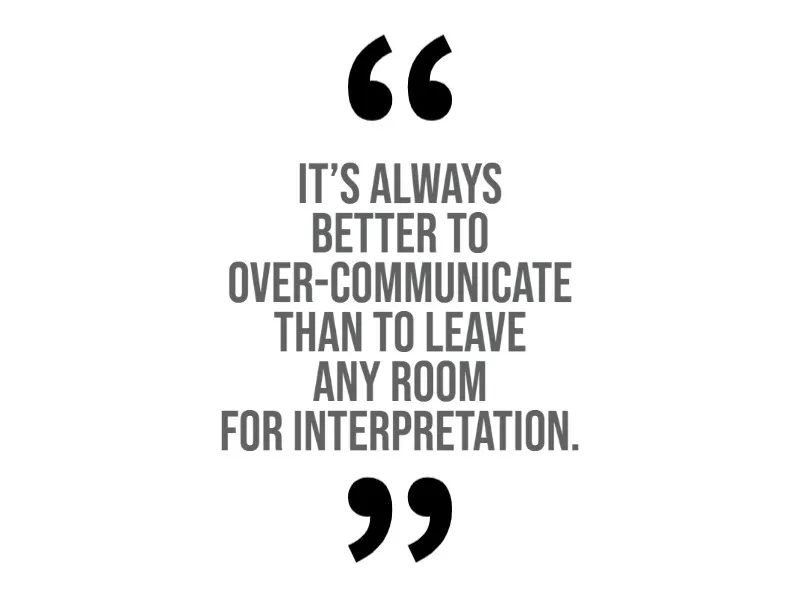
While working remotely, being super vague about what you’re doing is a great way to confuse the whole team as they try to piece together what they might need to do. The majority of our experts agree that over-communicating is the best way to put everyone on the same page.
“With remote work, it is always better to over-communicate than to leave any room for interpretation,” says Kateryna Reshetilo, head of marketing at Greenice, a web development company. “Make sure the key points are fixed somewhere in writing, either in the formal document, email or pinned message, so that you can refer to them whenever needed.”
By over-communicating, you’ll be clear about what targets you need to hit, giving you a better chance at positioning yourself for a raise.
Just Do the Bare Minimum or Whatever

ake1150sb / Getty Images
You’re working from home. No one can see what you’re doing right now. You might be watching TV and half-working. But as long as the deadlines are met, you probably won’t be fired. You will, however, not get promoted. Like being on-site, getting noticed at your job means going beyond the job description.
“The people that we promoted had one thing in common — they went above and beyond when doing their job,” says Malte Scholz, CEO and co-founder of Airfocus, a prioritization and roadmapping software. Scholz says these promotions occurred recently after their team had to work remotely.
“Instead of pulling on their manager’s sleeve for every little thing, they go and do what’s implied,” adds Scholz. “For example, someone who’s writing an article for our marketing campaign will also collect and upload the images, write the meta description and social media blurbs. In other words, they don’t sit around and wait for the additional instructions — they go and get things done without being told to.”
Solve Nothing
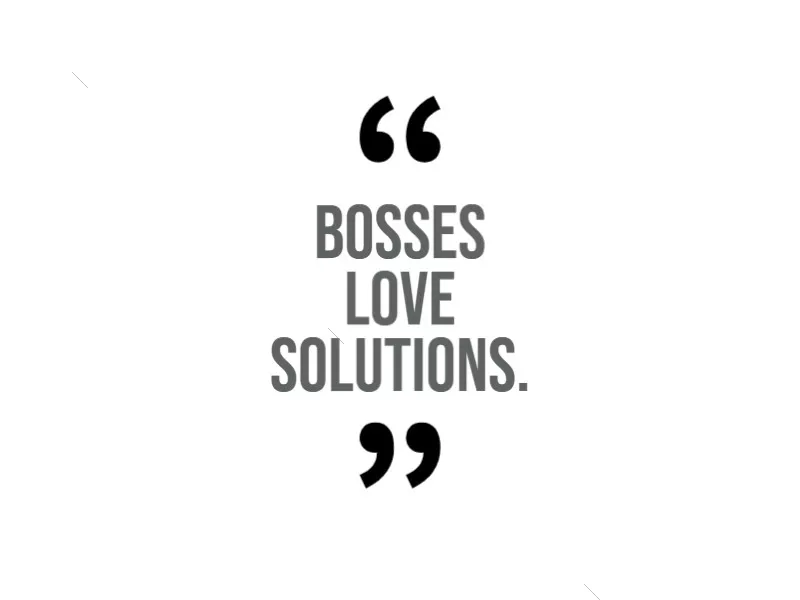
Who cares what the business could do better, or needs help with? “90 Day Fiance” is on tonight, and you’re busy texting your friends about Big Ed. Let someone else figure it out. That attitude won’t get you too far in your career. Try a different approach.
Remote working can allow you to take a bigger-picture point of view of your business. You’re not in a cubicle or chained to a desk, so take some time to look at what is happening in your position (or even elsewhere), identify pain points, and come up with some possible solutions.
“Bosses love solutions,” says Brian Robben of Robben Media, a marketing agency. “As a CEO, 99 percent of the time, I hear problems. It’s on special occasions where I hear a problem followed by a solution.”
Give Up Immediately

PeopleImages / Getty Images
Problems are hard. Why bother trying to come up with an answer when you can just plug away at what you’re good at?
Some problems remain problems because they’re very difficult to solve. Don’t feel like you have to have the 100 percent correct solution before approaching your boss or manager. The act of trying, and showing that you are trying, can be enough.
“I even give massive credit to someone who says here’s the problem, I’m going to analyze some solutions,” says Robben. “To get promoted, you don’t have to have all the answers, but the act of solving for solutions will earn your manager’s immediate respect.”
Just Show Up, and Add No Value
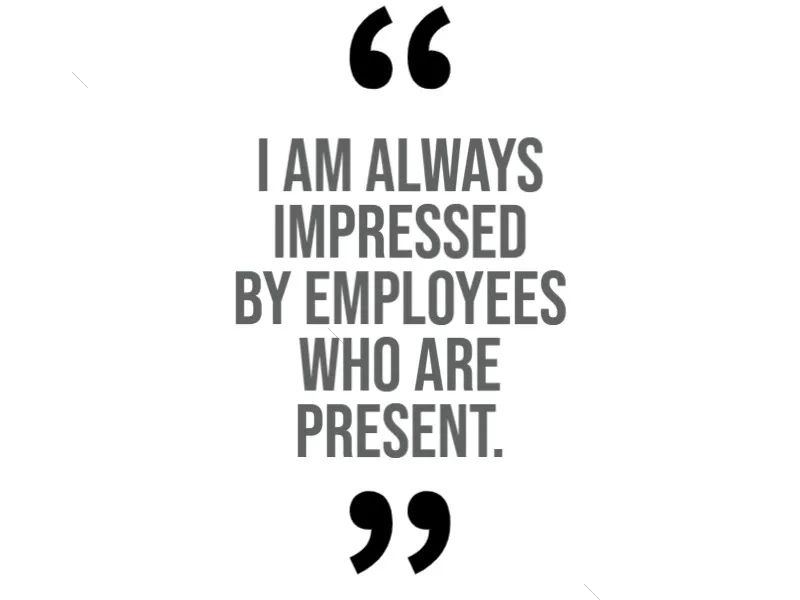
Work isn’t school, and you’re not going to get an attendance award for just showing up to work. Even when you’re working from home, you need to be active and engaged and add value.
“I am always impressed by employees who are present, even during remote work,” says Monica Eaton-Cardone, co-founder of Chargebacks911, a risk mitigation company. “Being present means that you intentionally engage your coworkers and that you make it a point to reach out to your boss to check up, ask questions, and review your daily tasks and responsibilities,” she says.
Use Extra Free Time to Lay on the Couch

nortonrsx / Getty Images
Sure, remote work can cut out long commutes and free up time. That will give you more time to lay on the couch or train your dogs to get you beer from the fridge. But if you want to get ahead, you might want to put some of those extra hours to see what boards and organizations in your field are out there. And get involved.
“It’s a great way to become more exposed to other leaders and their styles,” says Melanie Tino, chief human resources officer at WEX, a major payment processing and information management service company. “It’s also great practice for finding your voice as a leader and expressing new ideas in a low-risk environment.”
If you’re wondering where to look, Tino says workers can “look at their network or LinkedIn to get a sense of what their peers and other executives are doing, as well as tapping their alumni networks as a chance to give back.”
Treat Remote Work Platforms Like Cold, Intrusive Enemies

You might think of Slack, Microsoft Teams and all those other remote work platforms like horrible software used to spy on you and make sure you’re working.
Or you could have fun with them a little bit. Everyone loves a good GIF, and it’s not hard to use them like a pro. So make use of them at the appropriate time.
“GIFs can showcase your unique personality, which builds trust and camaraderie,” says Marissa Salazar, marketing manager for Microsoft Teams. “By maintaining crucial relationships with your coworkers and boss, you can stay connected to your team and hopefully stay top of mind for that next promotion.”
Sabotage Your Boss

fizkes / Getty Images
See your boss doing something that you know is going hurt them eventually? Laugh, point, and sit contentedly. Or, you know, treat them like people and give them some help.
“Remote work enables bosses that are not good people managers to retreat behind their computer screens,” says Marc Prosser, CEO and cofounder of Choosing Therapy. “If you are seeing your boss not do their job well, these unique conditions may give you an opportunity to offer to help and gain more recognition and responsibilities.”
So don’t just grumble. Reach out and see if they could use a helping hand. (Note: Some bosses may not deserve help. Use at your own discretion.)
Find Something Funny While Working? Tell Twitter, Facebook, and All of Your Favorite Social Networks Immediately
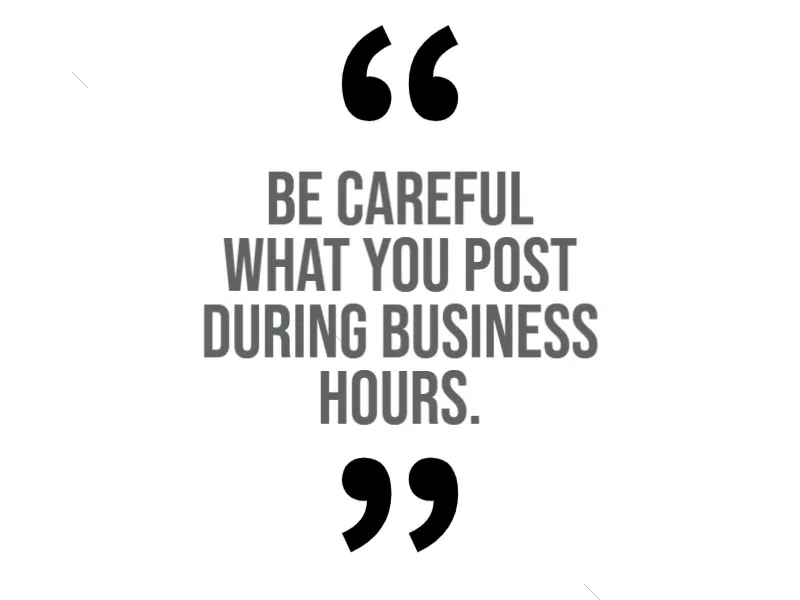
It’s the middle of the workday. What better time to tweet about the failings of the final season of “Game of Thrones” for the 1,000th time?
This sounds like a no-brainer, but working from home can meld the workday into your personal time. Those who are big on posting to social media might forget that posting memes on Twitter isn’t something a boss would think is a good use of your time when you’re on the clock — and not something that would help you get a promotion.
“If you’re going to post an Instagram story about the amazing lunch you just made, that makes it seem like you’re more invested in cooking than working,” says Alexandra Shadrow, CMO of ListPerfectly. “Be careful what you post during business hours.”
Play it safe, and promote some business-oriented stuff on LinkedIn if you need your social media fix.
Let Yourself and Everything Else Go

Drazen Zigic / Getty Images
No one’s around to judge your dress, or how clean your room is. Working from home is freeing, so why not fully give in to your inner slob? Bad idea. Even though you feel like no one’s around, you’re still at work, and you’re still being evaluated.
“It can be easy to get lax about the little things as time goes on, and you may not even realize it, but the boss will,” says John Moss, CEO of UK-based company English Blinds.
“This often comes down to things like personal presentation when on Zoom meetings, and even the backdrop or room you’re in, which should look professional and tidy, not as if you’ve just stopped in the middle of doing something else to jump on the call.”
If you keep up your own professional appearance, “this will get noticed,” says Moss, and you will “contrast sharply with those who do not.”
Shy? Stay in Your Comfort Zone
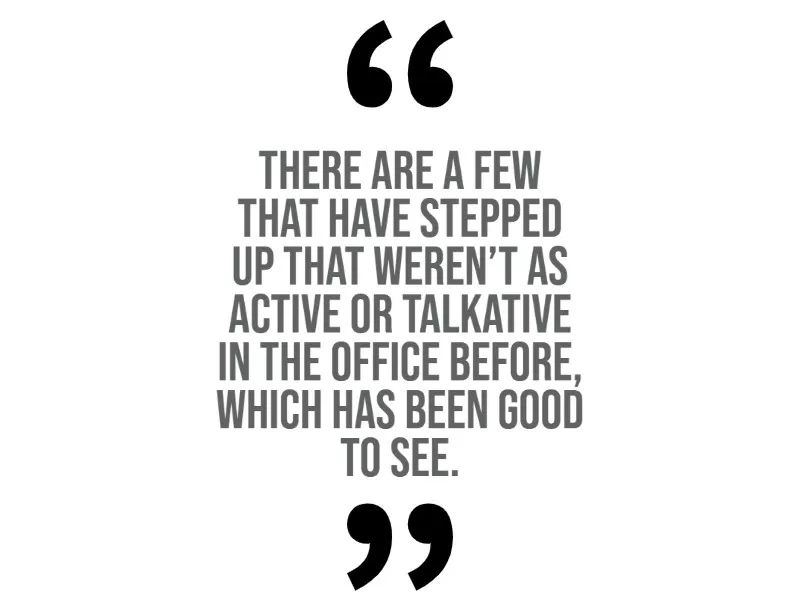
It’s difficult to be shy in the workplace, where communication is face-to-face, but being remote can give shy people more opportunities to crawl into a shell. Fight the urge, and do the opposite. Working from home can give those who don’t typically enjoy speaking up in the workplace an opportunity to do so.
Ben Walker, CEO and founder of Transcription Outsourcing, LLC, says most of his employees who were outgoing and want to get ahead in the workplace are active on Slack, email, and texting while working remotely. However, he noticed that some of his quieter employees have stepped up, too.
“There are a few that have stepped up a little more via email that weren’t as active or talkative in the office before, which has been good to see,” says Walker. “Sometimes I think they were intimidated by the more active and louder employees when we were in person.”
So if you aren’t the most outgoing, but are a hard worker, show your bosses that you’re engaged by being active, remotely, wherever you can.
Remote Presentation? Rush Through It With Little Thought

Tempura / Getty Images
If you have a presentation up, the best thing you can do is rush through it, as fast as possible, while not paying attention to any details, like if the links work, the camera is on and you haven’t muted your coworkers. Right? Well, no.
When giving a presentation, you’ll want to make the best impression possible. Think outside your physical appearance and also look at the physical tech and software that you’re working with.
“I can’t tell you how many people I’ve seen show up late to video meetings because of technical problems,” says Adam Sanders, director of Successful Release, a business that helps former inmates and disadvantaged people find jobs. “It isn’t a huge deal but it doesn’t look good. Instead, make sure you begin logging into any video system at least five minutes ahead of time. That will ensure you can download any necessary software and have a minute to compose yourself before everything begins.”
Work As Far Away From the Router As Possible
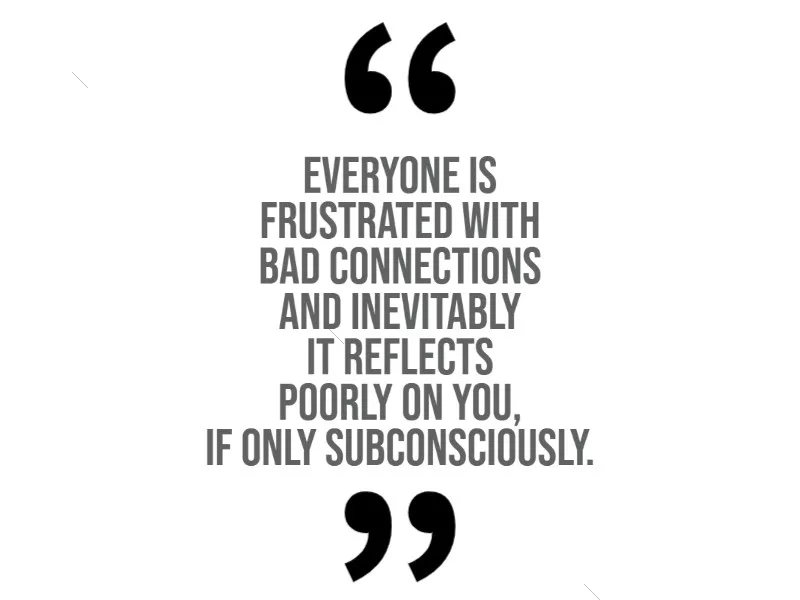
Frozen faces and stuttering video feeds are not unusual when everyone is working remotely, but it’s still frustrating. And it can be particularly annoying when you have something important to say, only to get cut off by something outside of your control.
“Zoom can take a lot of bandwidth, and the last thing you want is a poor-quality connection,” says Sanders. “Everyone is frustrated with bad connections, and inevitably it reflects poorly on you, if only subconsciously,”
While sometimes this can be completely out of your control, there are some things you can do. Make sure your router is close to your computer, or if it really stinks, upgrade it for a more powerful one. If you’re strapped for cash, a Wi-Fi repeater or extender may be able to boost the signal beyond thick walls and other in-house obstacles.
Turn the Camera Off

filadendron / Getty Images
Oh, how we miss the days of phone meetings, where we could wander around the house and dance to the music in our heads.
But now everyone is in video conferencing, so we have to look ready to go. Many companies won’t outright require that you have your camera turned on, yet it’s almost always a good idea to do so.
“What I personally recommend is that you always turn your camera on, even when it’s not ‘required,'” says Sean Nguyen, director of Internet Advisor. “That shows that you take your job seriously, and they get to see your face more. It always helps when people are reminded that they are working with humans, not just faceless computers.”
Never Mention the Work You Do
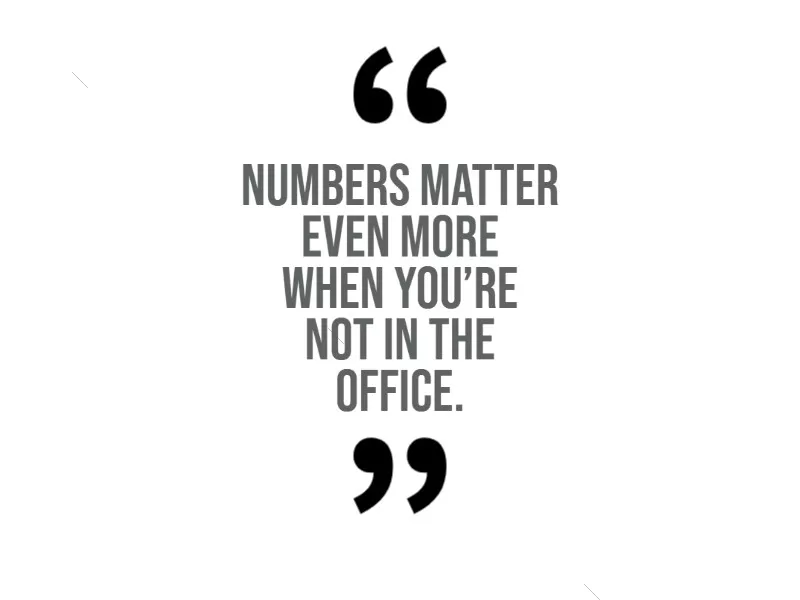
Why talk about the stuff you’re doing when your boss is keeping tabs on you, 25 other people and his own job, responsibilities and life? Surely, they’ll advocate for you. Right? Wrong.
Do not assume anything. That includes waiting to get a pat on the back. You have to be proactive and communicate what you’re doing and the results you are achieving.
“Numbers matter even more when you’re not in the office,” says Sanders. “Quantifying your results, especially if they’re improving, is an essential way to demonstrate your continued value as a team. When your leadership can’t walk through the office and see everyone hard at work, you need to show them you’re just as productive. They have to see the results.”
Write Nothing Done and Just Remember Everything in Your Head

scyther5 / Getty Images
You’ve done a lot of work in the past year. Where is all that information? *Taps forehead.* If only someone would ask you about it! Except they’re likely not to do that, and you’re likely to forget some of the stuff you did if you don’t keep track of it.
“To highlight the value you bring to the business, keep a running list of your accomplishments and solutions that have helped the business’ bottom line,” says Arran Stewart, CVO of Job.com, an automated hiring and recruitment platform.
It’s what Stewart calls a “living portfolio,” a document that you should continually update whenever you achieve something at work. “Use this living portfolio to show how you’ve effectively used your creativity and innovation toward improving the company and satisfying the company mission,” he says.
Always Badger Your Boss
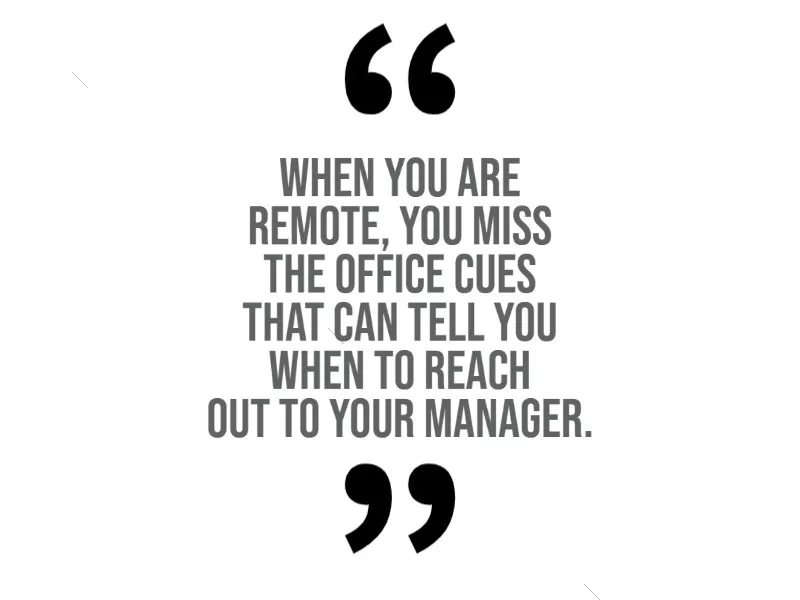
You want to prove that you’re working. Remote work means your boss is more accessible than ever, so why not message them every day, say, first thing in the morning? Before assuming that your boss wants a video call at 9 a.m. every Monday to check in on the status of your project, ask what works best for them.
“Do they want weekly updates, or prefer updates at critical points during your project? Is it a phone check-in or email? If you have a question, how should you ask it?” advises Pam Kulnis, program director of Bottomless Closet, a New York City business that both outfits women with professional clothing and offers career advice and workshops.
“When you are remote, you miss the office cues that can tell you when to reach out to your manager — office door open, body language that clearly states no time right now, etc. Clear communication in advance always helps to set the tone and is generally appreciated.”
Don’t Learn Any New Skills

alvarez / Getty Images
Yeah, those remote conferences are free, but they’re not as fun as watching “The Witcher” for the fifth time, so why bother?
“Whether it’s enrolling in online classes at a local college, listening to motivational podcasts in their chosen field, or gaining a new skill from the dozens of online learning platforms such as Skillshare or Udemy, team members have lots of great opportunities to build on what they are doing,” says Ann Nihil, operations and culture manager at Fracture, a sustainable Florida-based company that prints photographs onto glass.
She notes that things you’ve learned or courses you’ve taken should be shared during annual goal meetings, which can “help build the dialogue for the next steps.” This can help you move up that career ladder.
Beg for Micromanagement
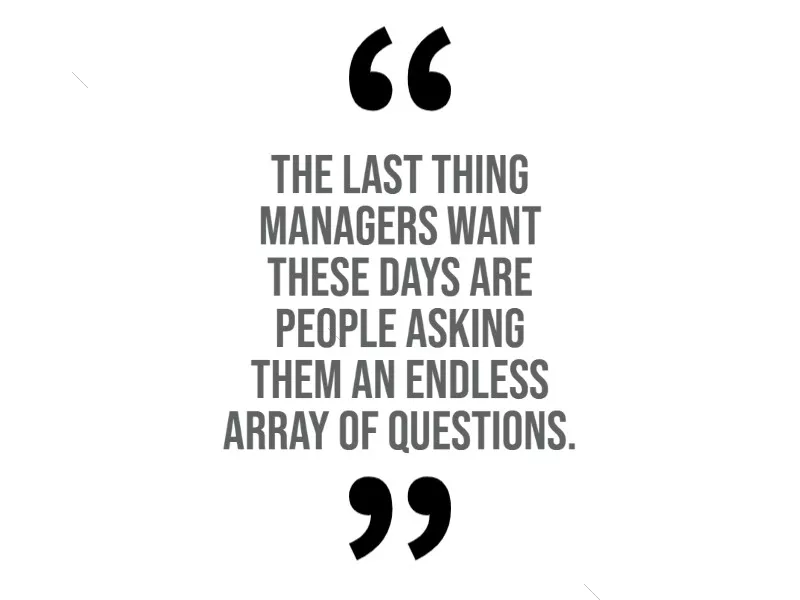
Working from home can be overwhelming for some, and there might be a nagging feeling that you need more direction. Resist the urge to keep messaging your manager about exactly what you should be doing, task after task. Take some time to figure out your expectations without burdening others.
“The best thing you can do right now is ask pointed questions upfront, and hand in quality work,” says Joshua Ladick, founder and president of GSA Focus, Inc. “The last thing managers want these days are people asking them an endless array of questions.”
You have an opportunity to be independent. Use it wisely.
Be Kinda Useless

Anchiy / Getty Images
Do you find yourself better at certain specific tasks than other people? Do you watch them work with smug superiority as you add nothing to the conversation. This is not the definition of being a team player.
Maybe you could lend a hand. This could help the company collectively and showcase your skills. And one of the best ways to get noticed is to solidify yourself as someone on the team with a useful or indispensable skill.
“All employees, remote workers especially, should develop an ‘X-factor’ skill — something that differentiates them from everyone else on the team and certainly everyone else with the same job title,” says Tim Toterhi, career coach and founder of Plot Line Leadership. “Becoming the ‘go-to’ person for a topic or skill will ensure that people keep coming to you.”
But what if you’re not sure what your go-to skill is, or how you can develop one?
Find What You Do Well, Then Ignore It

If you’re struggling to figure out how to become a “go-to” person, Toterhi advises you should look back on past work experiences and try to remember specific instances where you were able to help people out, and why people might go to you in the future.
“For example, Sally might be an Excel whiz who can quickly help a manager with a report. Perhaps John is a great communicator who can rally the team around a key project. And maybe Bill is an excellent proofreader who can give that critical communication a once over,” says Toterhi. “Once you’ve identified your X-factor skill and confirmed it has value, make sure people know about it by volunteering on key projects. What seems like a little extra work for you could be a big help to your manager.”
However, make sure your go-to skill is valued and makes sense within your career.
Take All the Grunt Work

blackCAT / Getty Images
When looking to add value to the team, Totheri says there’s one thing you shouldn’t do when becoming a valuable worker.
“Never sign up to be the ‘go-to’ person for grunt work,” he advises. “Being a team player is important, and it’s nice to be noticed, but your ‘go-to’ skill should advance your career as much as it helps others.”
Make Your Bosses’ Jobs Harder
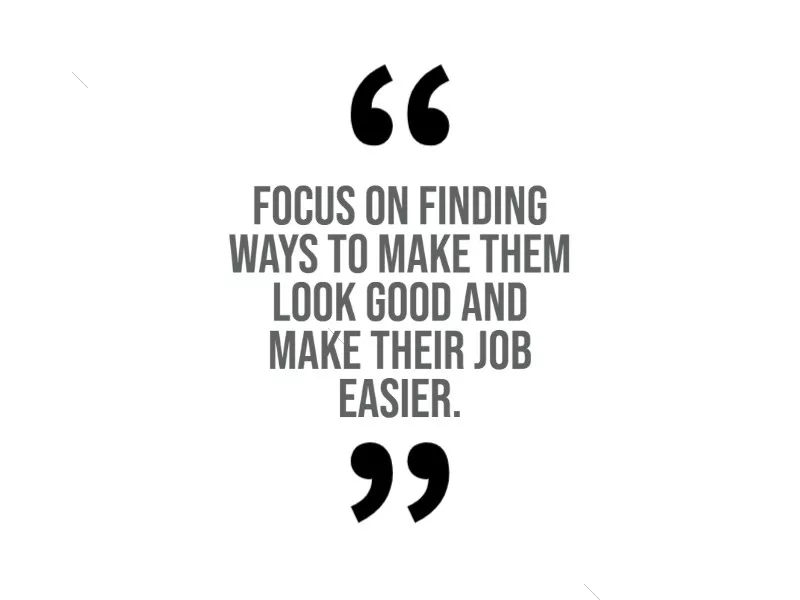
Remote work, especially when it’s brought on unexpectedly, can be tough for everyone. Bosses have to juggle even more moving parts than most, so it’s not a good time to see if you can screw with them. That’ll get you fast-tracked to somewhere you don’t want to be.
“Be supportive,” says Amy Kan, a career coach. “Remember that your boss is probably in the same boat as you with regard to uncertainty and overwhelm[ing feelings] — but worse. Empathize with the pressures they face. Focus on finding ways to make them look good and make their job easier.”
We repeat: Remember to empathize.
Take All the Credit, and Give All the Blame

DjelicS / Getty Images
During a meeting, did your boss accidentally attribute someone else’s work to your name? Was your team’s project a huge success, thanks to everyone contributing? Don’t just stand there, pretend like you did all the work, hog all the glory, send a picture of your face on Slack, use a fireworks gif and celebrate you. Do give credit where credit is due.
“Give praise to others. Why? Because they will feel obliged to give praise back,” says Andrew Taylor, director of Net Lawman. “At the very least, people start looking at you and seeing what you’re accomplishing. The praise can be used as testimonials for your case on getting a raise.”
Working on a remote work platform like Slack or Microsoft Teams offers an even better way of giving praise than a physical pat on the back, because the text hangs in chat, for all to see. A congratulatory GIF adds some flair, too, and will help draw attention to the hard work of others, and that you’re tuned-in enough to recognize it.
Time Has No Meaning, So Ignore It
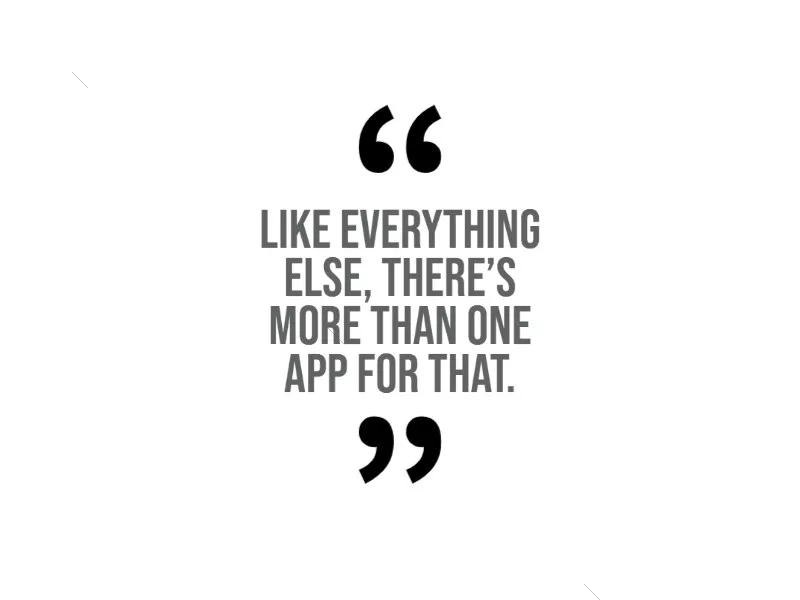
Work is tough. Maybe it’s time to read that website for 15 minutes. Or watch that new YouTube video. Whatever, it’s not like you’re truly on the clock, right? Remote work takes an enormous amount of self-discipline to make sure tasks are done well and on time, and doing so is absolutely vital to even hope for a promotion.
So if you’re feeling like you need some time management, don’t ask your boss to manage you. Like everything else, there’s more than one app for that.
“Use a tool like toggl, Asana, or Trello to capture where and when time is being spent to complete assigned role deliverables and course-correct yourself based on what you observe from the data,” says Karen Oakey, human resources director at Fracture.
Dress Terribly

BartekSzewczyk / Getty Images
You don’t need to wear a suit or dress up in a tux (like Jim did in that episode of “The Office”). When it comes to Zoom meetings, some experts say to wear professional attire. But what exactly does that mean?
The best way to gauge whether or not you need to dress up is mirroring your boss. If they are making a point to wear a dress shirt every day, then you should follow suit. If they’re wearing a graphic T-shirt, then being more casual won’t cause rolled eyes. Basically, don’t be Jim from “The Office” that one episode.
Either way, you can’t go wrong with decent clothes.
Never Ask for Feedback. Just Assume You’re the Best and Are Doing the Best Job.
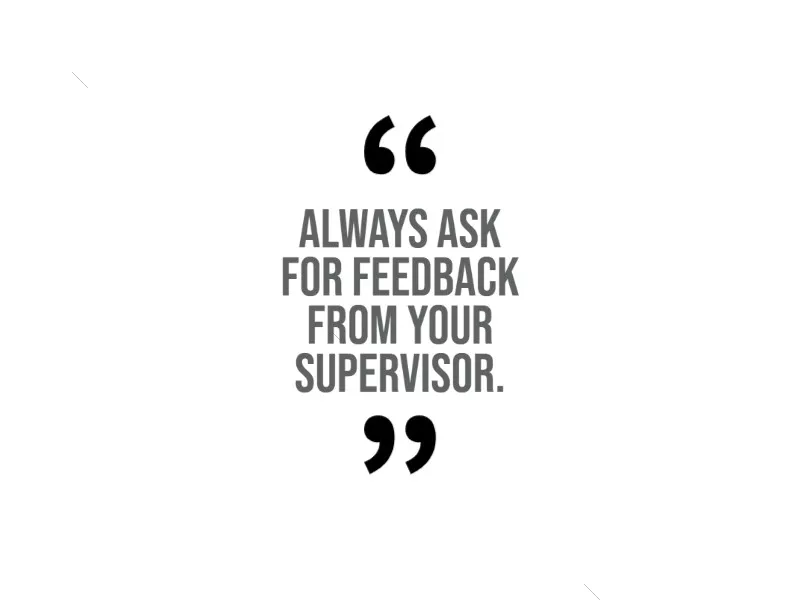
You’re the best, mom said so. So when the best does something, that means it’s the best kind of work. Right? It’s certainly the best way to go in the wrong direction at work.
It can be more difficult to gauge how well you’re doing at work while working remotely. There’s no body language to pick up on, and there isn’t anyone around to give you spontaneous feedback. So ask for it.
“The best way to get a promotion while working from home is to always ask for feedback from your supervisor,” says Jonathon Wright, cofounder of The QA Lead, a web resource for quality assurance workers. “There are two benefits to doing so. The first one is that you’ll give yourself the chance to get noticed by your boss, and the quality output you produce won’t go unnoticed.
“The second benefit is more on personal growth. When your boss gives you constructive criticism, you can use the feedback to change your current practices to meet the demands mandated by your supervisor.”
Be Inflexible

RossHelen / Getty Images
Need to switch gears? Forget that. You shift one way and one way only, and that’s forward. Not exactly. In today’s workforce, adaptability is an important and vital skill.
“Be flexible enough to reprioritize your assignments and reschedule other tasks where possible, to give them the reprieve they necessitate,” says Steve Pritchard, human resources manager at Checklate. “Even if you just assist with a minor project, like taking care of some admin jobs to alleviate their workload, your support will be greatly appreciated.”
Never Ask to Help

Ask to help? Why bother? If someone needs something, they’ll ask for it. That’s on them. Right?
Not all managers will ask for help, and not all companies or initiatives have easily identifiable problems. So step up, send a private message, email or even text and ask what you might be able to do to help your manager and the company.
“If you’re not sure how to add value or where your additional help is most needed, ask,” says Michele Mavi, career coach and owner of MonumentalMe. “Talk to your manager about your desire to pitch in.”
Don’t Talk to Any of Your Coworkers

anja85 / Getty Images
People aren’t around you, so how the heck are you supposed to strike up a conversation?
Just because the water cooler is gone, doesn’t mean the chitchat has to go, too. Whether your team uses Slack, Microsoft Teams or any other remote workplace platform out there, don’t be afraid to chat with your coworkers.
It’ll keep you on people’s minds and show that you’re invested in fostering relationships with the team. Just keep it in the appropriate channel.
Skip All the Events
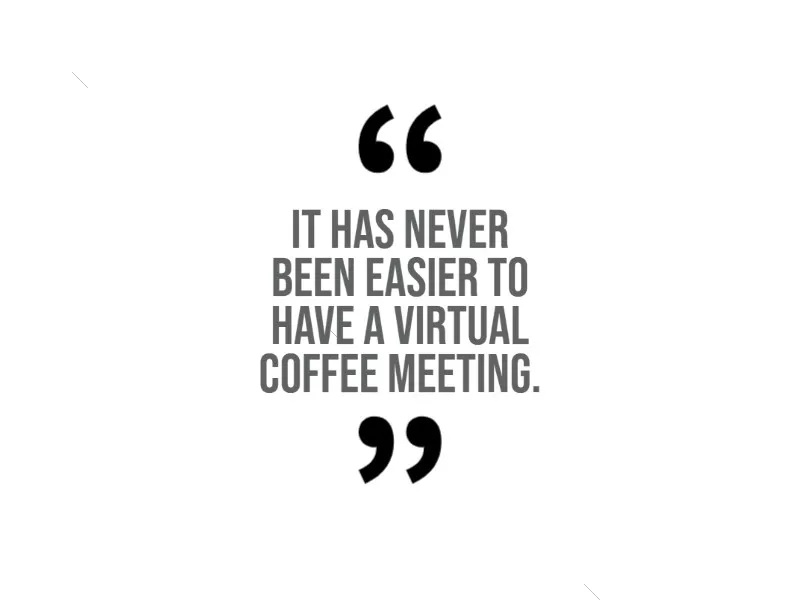
It’s never been easier to skip company functions. Write up a lame excuse, hit send, turn on the television. It’s also easy to ignore anything else that’s going on within your field. It’s not right in front of you, after all. Yet being remote can open up whole new avenues of communication with people you wouldn’t otherwise interact with.
“It is critical that you are constantly building your network, especially while you are remote,” says Lauren Hasson, founder of DevelopHer, a career advancement platform and network for women in the workplace.
Hasson advises remote workers to show up for Zoom happy hours (even if you don’t drink) and “reach out to new people within the company and also in your external network.”
“It has never been easier to have a virtual coffee meeting than now,” she says.
Roll Out of Bed and Go Right Into Your Meetings

Drazen_ / Getty Images
It’s also never been easier to fall right out of bed and go to your morning meetings wearing the same clothes you wore yesterday. The days blend together, the world outside has become a nightmare. Why even bother looking in the mirror?
“Common online etiquette mishaps include looking like you just rolled out of bed,” says Jenny Gray, senior director of application development at Power Home Remodeling. “Employees should do their best to avoid that. And if the team is using messaging to stay in touch, they should remember that it is still work and that they need to speak clearly and professionally.”
No One Can See You and You Can Do Whatever You Want
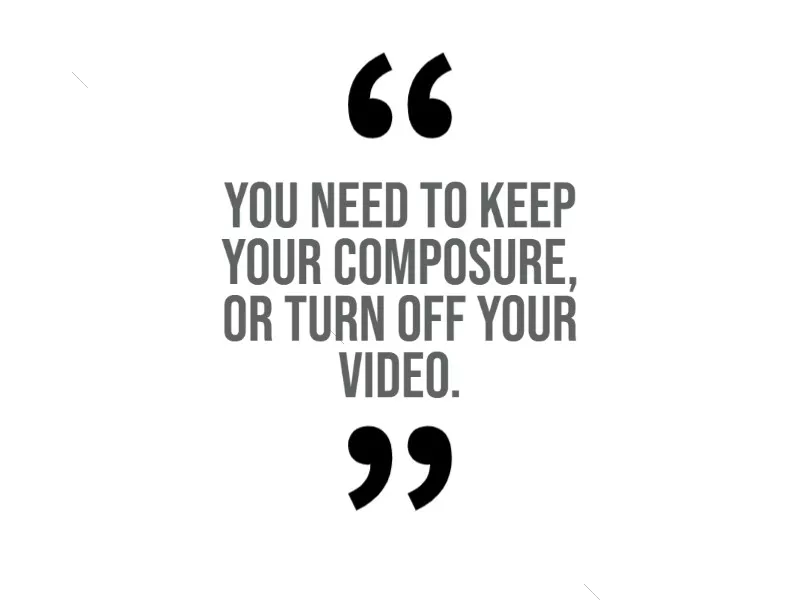
While there’s no one around to hear you fart (at least if you’re on mute), there are still people in those little video windows.
“Your coworkers can see smirks on your face when you don’t like what you hear, or can see when you get distracted, which happens more often when you’re not in a room looking at each other,” says Kathy Oneto, founder of The Agency Oneto. “You need to keep your composure, or turn off your video.”
Ignore Your Boss

monkeybusinessimages / Getty Images
Since your boss now lives in a tiny window on the computer screen, it’s easy to ignore them and just sort of coast through your workdays. That approach could work for some people who don’t want to advance their position, but not for those who are looking for a raise.
One of the things all our experts seem to agree on is that scheduling a regular one-on-one is one of the best moves you can make when trying to advance your career. This could be once a week, biweekly or monthly, but make it a regular thing.
“Be candid and ask your boss, ‘What can I do better?’ Even if they know things need to improve, most managers like to avoid friction,” says Dean Calhoun, president and CEO of Affygility Solutions, an occupational health and safety consulting firm. “If you can bring it out in the open, your manager just might reveal a few things you never expected.”
Ask for a Demotion
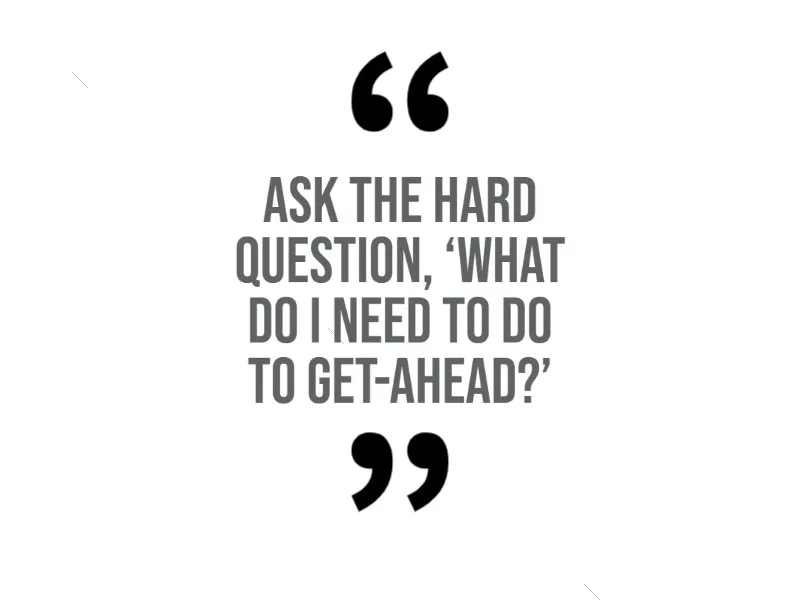
What does it take to get ahead? Doing everything you think works and ignoring everything else. Right? Or you could just ask. The best way to help advance your career, whether you’re working remotely or not, is to just go ahead and ask what it takes.
“Ask the hard question, ‘What do I need to do to get ahead?” says Calhoun. It’s not an easy question to ask, but it can pay off. A good manager will let you know what they’re looking for.
And if they tell you something along the lines of them being happy with where you are — and you’re not content being where you are — then you need to consider finding a company that supports your professional ambitions and growth.